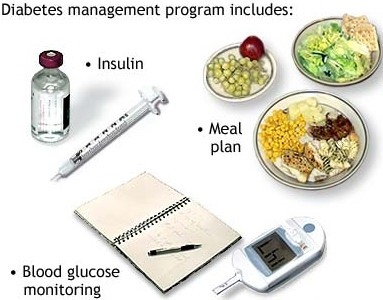Christmas is round the corner and it is time to welcome family, friends and guests into our homes and enjoy elaborate meals and special treats. But, if you are diabetic it can be a difficult time to exercise control and stick to a diet with a scrumptious spread of desserts, cakes and pies around. In many ways diabetes is like an unwelcome guest, albeit a sweet one that demands your constant attention and seeks continuous adjustment.
Diabetes if not controlled can lead to other complications including heart attack, neuropathy, kidney dysfunction and poor eye sight. But, there are ways to minimize the impact to your body. You can be the one to call the shots (probably the one to take shots too) and confront the issues related to this lifestyle disease.
Normally, the pancreas, produce the hormone insulin which absorbs glucose or sugar from the food we eat, thereby maintaining optimal blood sugar levels in our body. But, in case of diabetics the amount of insulin produced is insufficient leading to a rise in blood sugar levels. This could be hereditary or due to decrease in metabolic activity associated with age, deterioration of body functions or an auto immune disease. The optimal blood glucose level should be < 100 mg/dl (fasting) and <140 mg/dl (post-lunch). Those who have type 2 diabetes only benefit from diet modification. For the other types medication is mandatory.

For diabetics, the recommended intake in a day (1200-1500 kcals) looks somewhat like this. It could differ based on your gender, age and level of physically activity.
- Carbohydrates / Fibre (45-55%): Whole grain or multi grain bread, bran cereals, brown rice, oats, sweet potatoes or potatoes with skin are better choices for carbs while Brussel sprouts, oatmeal, lima beans, wheat germ, artichoke, broccoli and black beans are good sources of fibre.
- High protein (25-30%): Eggs, lean meats like chicken breast, tuna fish and sea food. Vegetarians can get their protein from legumes, lentils, low fat milk, yoghurt, cheese and tofu. High protein diets are typically more filling and help prevent snacking between meals.
- Fat (10-15%): Avocados, almonds and cashews. Flax seeds, salmon (Omega 3 fatty acid).
- Veggies that are non-starchy do wonders. Consider asparagus, lettuce, coloured peppers, cucumber broccoli, cauliflower, spinach and mushrooms while you shop next.
- Fruits: Limit the ones with high glycaemic index (> 55) like mango, guava and banana. Berries have been known to help maintain optimal blood sugar levels. Pure fruit spreads can be used on bagel and breads in place of high fat ones..
Ensure your diet is
high in protein and fibre,
low in carbohydrates, sugar, sodium and fat. The carbohydrate content can have a direct impact on your blood glucose levels. Whole grains have complex carbohydrates that take more time to breakdown thereby giving your body time to produce insulin and assimilate the glucose. Work out an achievable diet regimen after consulting with your dietician and physician.
Fenugreek, aloe vera, cinnamon and vinegar have been known to help maintain and even lower your blood glucose levels. Artificial sweeteners like aspartame, sucralose, maltodextrin are safe however they do have a carbohydrate content which might lead to mild increase in glucose over a period of time. If you surf the internet it will give you an array of diabetic supplements that claim to work miraculously without any diet restrictions. Anything that comes so easy is too good to be true, so stay away from these products unless they are recommended by your physician.
Foods to avoid: Baked goods, whole milk, butter, refined carbohydrates, partially hydrogenated oils, processed foods, white rice, granulated white sugar, ice-creams, red meat and aerated drinks.
It is not just what you eat, but also how you eat. Start with a heavy breakfast and end with a light and early dinner. Eat small quantities at regular intervals and have bite size servings. Chew your food slowly and completely. Try not to overindulge. Team up with your spouse or friend for some physical activity. Most of the local community health centres in Toronto offer a Diabetes Education Program. Your family doctor can refer you for the same.
Living with diabetes does not mean missing out on all the fun. It all depends on how you take charge of the situation. With regular monitoring, a little discipline, weight control, awareness and respect for your body’s needs diabetes can be controlled effectively. This holiday season instead of thinking of food as the problem think of food as the solution. Eat right to beat diabetes.

 For diabetics, the recommended intake in a day (1200-1500 kcals) looks somewhat like this. It could differ based on your gender, age and level of physically activity.
For diabetics, the recommended intake in a day (1200-1500 kcals) looks somewhat like this. It could differ based on your gender, age and level of physically activity.